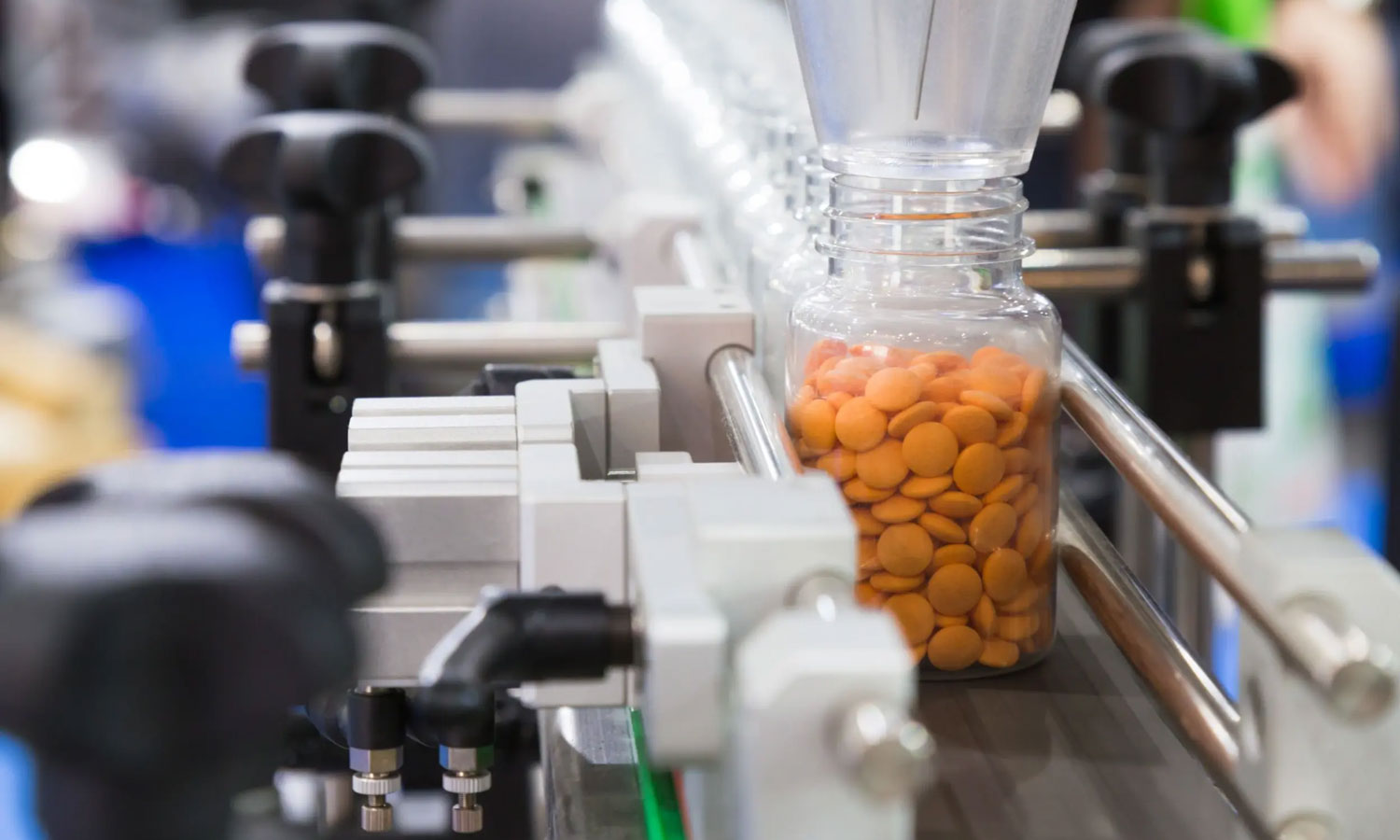The U.S. Department of Commerce’s Economic Development Administration Friday announced that a coalition of public and private sector stakeholders in the Richmond-Petersburg region, including Virginia Commonwealth University, will receive nearly $53 million as one of 21 winners of the national Build Back Better Regional Challenge.
As the marquee of the EDA’s American Rescue Plan, the Build Back Better Regional Challenge is “centered around a vision that as our economy recovers and modernizes, as science and technology accelerate and change the nature of how we manufacture, we want workers and small businesses leading this transition, making sure they’re a part of it … instead of fearing that this is going to leave them behind,” said U.S. President Joe Biden in a news conference on Friday.
The Richmond-Petersburg coalition — Alliance for Building Better Medicine — works to scale up the region’s advanced pharmaceutical manufacturing and research and development cluster to address the nation’s pressing need for quality, affordable essential medicines. Coalition members will leverage the Build Back Better Regional Challenge funding — which will be matched by more than $13.3 million in funding from private and public organizations, for a total investment of nearly $77.8 million — for six construction and programmatic projects.
“This grant supports academic pathways, training opportunities, research collaborations, facilities, and mentoring to prepare graduates for advancing manufacturing and technologies in the region,” said Gregory E. Triplett, Ph.D. professor in the Department of Electrical and Computer Engineering at VCU’s College of Engineering and principal investigator of the coalition’s workforce development and education component. “It also provides resources to help attract, promote and advance careers for many in STEM. We are maximizing opportunities using multi-institutional collaborations.”
Medicines for All at VCU is the cornerstone of the coalition, which was formed in 2020 through an initiative of VCU’s College of Engineering to design a regional strategy for advanced pharmaceutical manufacturing leveraging existing assets.
“Medicines for All is providing two really important elements to the success of this in our efforts to build up this regional hub for advanced pharmaceutical manufacturing,” said B. Frank Gupton, Ph.D., CEO of Medicines for All. “One is the work that Medicines for All is doing directly to provide low-cost processes to be able to produce these medicines. But equally important is the workforce-development component that we’re collaborating with Virginia State University on.”
The coalition reconvened in 2021 to fast-track development of an advanced pharmaceutical manufacturing cluster in central Virginia. The coalition received seed funding from GO Virginia and others totaling $2.5 million.
“This public-private partnership is critical as it ensures that employers will have access to the region’s top talent,” Triplett said. “The partnership with an HBCU — VSU — demonstrates the strength of the region, and the academic pathways are examples of what can be a national model. It introduces the possibilities to those who may not be aware of the opportunities in pharma and provides a top education for addressing future challenges.”
Members of the growing coalition quickly began developing opportunities for the emerging cluster to involve and impact the entire region and its many communities – urban and rural, students, entrepreneurs, small business owners, veterans, and low-income and minority populations disproportionately impacted by economic distress and the COVID-19 pandemic – with the goal of creating high-paying jobs and careers for individuals with a wide range of educational levels and experiences.
In 2021, the coalition won Phase 1 of the Build Back Better Regional Challenge and began to plan in detail the six projects now funded with the support of Activation Capital, the cities of Petersburg and Richmond, Civica Inc., Community College Workforce Alliance, Greater Richmond Partnership, Medicines for All Institute at Virginia Commonwealth University, VCU College of Engineering, Virginia Economic Development Partnership, Virginia’s Gateway Region, Virginia State University, Commonwealth Center for Advanced Manufacturing, GENEDGE, Brightpoint Community College and Reynolds Community College.
The alliance will use the EDA funding opportunity to construct a center to accelerate manufacturing innovation and the commercialization of lab discoveries. This first-of-its-kind facility will spur collaboration, invention and investment by speeding bench discoveries to commercial scale.
“It’s not just area employers,” said Gupton, a professor and chair of the Department of Chemical and Life Science Engineering at VCU’s College of Engineering and the Floyd D. Gottwald, Jr., Chair in Pharmaceutical Engineering at VCU. “It’s new businesses that are going to locate with us to try and take advantage of the technology opportunities that are going to be created with both the funding and the continuing work that we’re doing in building a more cost-effective platform for advanced manufacturing pharmaceuticals.”
Funding will be used to develop new and joint degree and research programs between VCU and VSU and industry partners, as well as manufacturing technician training at BCC and laboratory technician training at RCC, coordinated by the Community College Workforce Alliance.
In addition, funds will be used to construct an innovation center with additional wet lab space in Richmond’s Virginia Bio+Tech Park, located next to VCU’s MCV Campus, to help existing organizations in the region grow. Support from the EDA will enable local and regional economic development organizations to accelerate development in the region of the supply chain needed to produce new research, sales, service and manufacturing facilities, and new jobs in the Richmond-Petersburg region.
“We are building a talented, diverse workforce for the growing pharma industry in central Virginia,” Triplett said. “Virginia is primed to be the national center for pharma manufacturing. Because of expertise in the region including research from our faculty, we will continue to push the frontier and realize what is possible when we have a common goal.”
EDA funds will also support improvements to water and wastewater infrastructure in Petersburg’s Poor Creek service-area serving the growing manufacturing facilities there.
